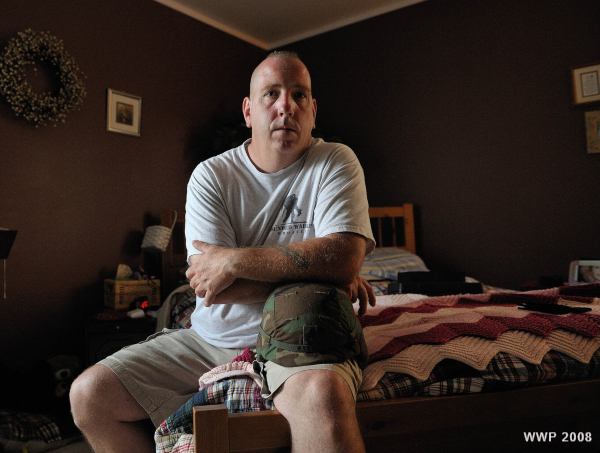Boost Your Sleep for Better Health

When we changed the clocks to “fall back” one hour, did most of us get an extra hour of sleep? Unfortunately, for many us, and particularly for most veterans, there is no rest for the weary when it’s time to switch clocks — or any other time of the year.
Sleep issues are a top concern for veterans year-round. A Wounded Warrior Project® (WWP) survey of the warriors it serves shows sleep problems are the most commonly reported injury or health problem, with 80% experiencing them.
Knowing this, WWP helps warriors address sleep problems from multiple angles. The WWP physical wellness coaching program helps veterans develop better sleep habits in addition to helping improve nutrition and fitness. The 12-week coaching program educates and empowers veterans to make lifestyle changes that lead to long-term improvements in their well-being.
WWP’s mental health programs prompt veterans to consider how sleep disruptions, such as nightmares and insomnia, affect their physical and mental health. Help is available for warriors who manage challenges like PTSD, traumatic brain injury (TBI), and sleep apnea.
Getting a good night’s sleep can be incredibly challenging. But there are starting points to reclaiming rest and well-being. WWP wellness coaches ask warriors to consider sleep environment, consistency, and quality — and any medications that might impact sleep.
Learning to change bedtime behaviors can help you gradually increase hours of sleep, which in turn can positively change weight, mood, mindset, and risk of health problems down the road.
Here are some ways you can improve your sleep:
ENVIRONMENT
Assess where you sleep: comfortable mattress, pillow, and temperature? Are you watching TV or staring at the phone right before you go to bed?
- Try improving it: Make the room more comfortable: cool, dark, and quiet. Consider shades that block the light, and maybe a new pillow. Instead of looking at screens, choose calming activities before bedtime, like taking a warm bath or meditation. Avoid large meals near bedtime.
CONSISTENCY
What time do you go to bed? What time do you wake up? Do you nap during the day?
- Try improving it: Go to bed and get up around the same times daily. Set your clock for seven or eight hours of sleep. Observe a similar pattern daily, regardless of whether you have to get up for work or appointments.
QUALITY
How many hours are you actually sleeping, as opposed to just lying in bed?
- Try improving it: Get back up if you’re lying in bed wide awake and worried about a next-day task. If it comes to that, get out of bed, jot down your worries, then go back to bed.
MEDICATION
Which medicines do you take that might be altering your sleep patterns? If you have sleep apnea, do you use a CPAP machine?
- Try improving it: Talk to your doctor about any sleep issues. Review your medication list with your doctor and see if anything can be adjusted to help you sleep better. If you snore loudly enough to wake yourself up or suspect your breathing might be obstructed, talk to your doctor about options to improve your sleep and health.
Lack of sleep can increase stress hormone levels, leading to irritability, PTSD flare-ups, and suicidal ideation. It can also aggravate pain, alter your hunger hormones, and cause weight gain.
Good sleep provides increased physical stamina, better mental health, and better ability to manage chronic conditions.
“Warriors in the wellness coaching program are encouraged to make changes to improve their overall health,” said Joanna Corp, WWP Physical Health and Wellness coach.
Joanna highlighted an experience with a warrior who lost 40 pounds after adjusting her sleep schedule: “She was able to improve her sleep, eliminate headaches, and impact other aspects of her well-being by changing her sleep patterns.”
While you might not be able to control all the factors that affect your health, making small improvements can give you quality sleep that can turn things around in other areas of your life.
Learn how WWP’s Physical Health and Wellness program can help you identify barriers to better sleep and achieve better health.
About Wounded Warrior Project
Since 2003, Wounded Warrior Project® (WWP) has been meeting the growing needs of warriors, their families, and caregivers — helping them achieve their highest ambition. Learn more.